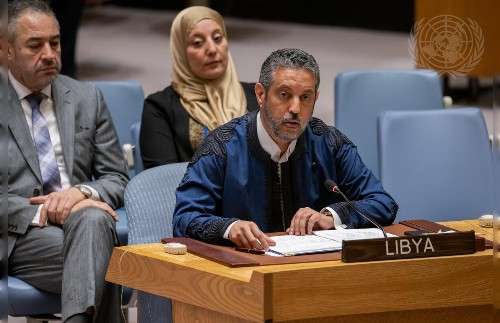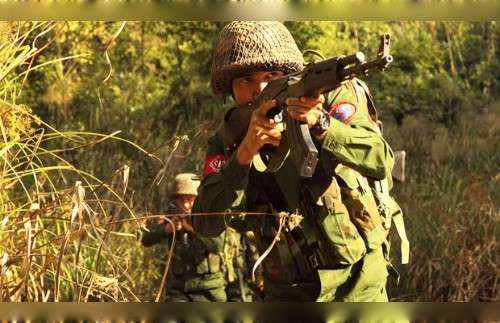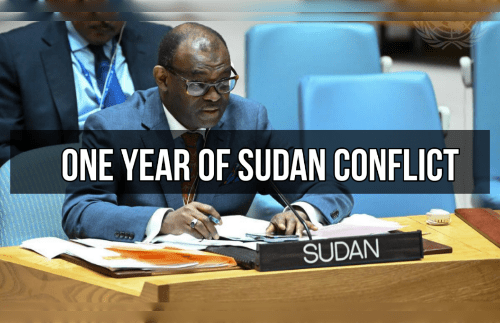Pete Baumgartner
Armenia is abuzz over its plucky national anthem since a prominent politician called for a return to the hymn that played under communism.
Alen Simonian, who was installed as deputy speaker just months after riding an antiestablishment wave into parliament last year, suggested late last month that the current Armenian national anthem, Our Homeland, should be discarded as simply bad.
He said the Soviet-era hymn, by world-famous Armenian composer Aram Khachaturian, should be reinstated because it is “a powerful anthem that meets all the requirements.”
The anthem debate has bounced around for years but could take on added symbolism since a bloodless popular revolution last year dislodged an entrenched ruling party and helped recast the Transcaucasus country of nearly 3 million people in many international eyes.
Armenians have variously criticized one or another of the options as pandering to Armenian nationalism, serving as a sop to Moscow, or capitulating to misguided political correctness, among other arguments.
Opponents of a return to Khachaturian’s Soviet-era composition have noted that its lyrics — written by Sarmen, a pseudonym for poet Armenak Sarkisian — include seemingly outdated lines like “Our wise party of Lenin, is victoriously leading us to Communism!”
Only a handful of national hymns around the world don’t include lyrics, although that approach was once adopted — then dropped — by another post-Soviet state.
Russia under then-President Boris Yeltsin approved a wordless anthem that proved broadly unpopular until it was replaced once Vladimir Putin became president in 2000 — reviving the old Soviet anthem with new words.
Worries About Russian Influence
Some critics on social media accused Simonian — a member of Prime Minister Nikol Pashinian’s My Step Alliance — of advocating a return to the Soviet-era song to signal allegiance to Moscow amid Russian anxiety that Yerevan may be tilting too far westward.
“How could we not be changing our anthem, if our great Russian brother has changed its anthem?” Facebook user Ann Norikian quipped in response to Simonian’s post on the topic. “Follow the Duma’s website for more information [about the Armenian national anthem debate].”
Others accused Simonian of grandstanding.

“This is Simonian’s individual move to bolster his own nationalist credentials and standing. It is obvious, as others in the government are dismissive [of the idea of changing the anthem],” Richard Giragosian, director of the Yerevan-based Regional Studies Center, told RFE/RL. “Others in government see it as a waste of time, with there being more pressing problems [for Armenia to deal with].”
But at least one minister in Armenia’s government, Diaspora Minister Babken Ter-Grigorian, said he would seek the opinions of ethnic Armenian communities around the world on changing the anthem.
Decorated Armenian musician/composer Ara Gevorgian threw his support behind the idea, saying that Khachaturian’s anthem “is a great hymn and we look forward to the decision to restore it.”
Appeals to jettison Our Homeland appear based mainly on three arguments: 1) that it is not “Armenian enough” because it is based on a poem which, while authored by Armenian radical intellectual Mikayel Nalbandian, was called The Italian Girl’s Song; 2) that it is simplistic musically; and 3) that its lyrics are dour and uninspiring.
“[The old hymn by] Aram Khachaturian, there is no doubt about that…it is inspirational and encouraging,” commenter Anna Manukian wrote on Facebook. “The current anthem is pretty dismal and is a symbol of our hopeless struggles. It’s time to get away from the status of being a victim.”
Others have come to the defense of Our Homeland, which was adopted by the First Republic of Armenia in 1918 ahead of a Red Army invasion in 1920 and the short-lived state’s absorption into the Soviet Union.
A key symbol of Armenian nationalism, Our Homeland was banned by Bolshevik officials and became an underground protest song against Soviet rule.
In 1991, newly independent Armenia — like most of the former Soviet republics — eagerly restored the hymn as its national anthem.
But Armenian officials also made several key changes to the lyrics from the original text, replacing a description of Armenia as “miserable and abandoned” for “free and independent.” It also got rid of the line, “Let Austria be destroyed” — to Vienna’s relief, no doubt.
Armen Ohanian, the president of PEN International’s PEN Center, tried to refute point by point the arguments of those supporting a return to the communist-era anthem.
“There is a misconception that the national anthem must be viable and optimistic, without touching upon the theme of death,” wrote Ohanian. He suggested they read the lyrics of France’s national hymn, La Marseillaise, or the lyrics of the anthems of “the United States, Italy, Argentina, and dozens” of others “where one can find an enemy, blood, and many pathetic calls for martyrdom.”
Styopa Safarian, a political analyst and former legislator, threw shade at Our Homeland’s detractors and chided Simonian and other politicians for not tackling more pressing issues.
“Is Armenia still a poor country without a high standard of living because we sing a sad and depressing anthem?” he asked. “Does the repatriation [of Armenians who left the country] fail because the anthem is bad? Is the disturbing demographic situation and projections…we have about the mortality rate becoming higher than
the birthrate because the word ‘death’ is found three times in the lyrics of the anthem?”
But Simonian isn’t content with merely changing the national anthem. He has also called for a cross to be added to Armenia’s tricolor flag in a move reminiscent of what Mikheil Saakashvili did just weeks after coming to power during neighboring Georgia’s 2003 Rose Revolution.
It is a potentially shrewd move in a country whose ancestors were the first to have adopted Christianity as a state religion, where more than 95 percent of people consider themselves Christian.
Simonian has so far met with less public opposition to that proposal.
[Written by Pete Baumgartner based on reporting by Harutyun Mansuryan and RFE/RL Armenian Service correspondents Gayane Saribekian and Siranuysh Gevorgian.]
Copyright (c) 2019. RFE/RL, Inc. Reprinted with the permission of Radio Free Europe/Radio Liberty, 1201 Connecticut Ave NW, Ste 400, Washington DC 20036










